- Home
- Nora Roberts
Whiskey Beach Page 14
Whiskey Beach Read online
Page 14
“Why would anyone dig down here? Hester never said anything about excavation.” She ran her light over a pickax, shovels, buckets, a sledgehammer. “It would take forever to dig in this ground with hand tools.”
“Power tools make noise.”
“Yes, but . . . Oh my God. That’s what this was about tonight? Coming down here to dig for . . . whatever. The legend? Esmeralda’s Dowry? That’s ridiculous—and that has to be it.”
“Then he’s wasting time and effort. For Christ’s sake, if there was treasure, don’t you think we’d know, or have found it by now?”
“I’m not saying—”
“Sorry—sorry.” He paced away. “All this wasn’t done just tonight. This is weeks of work, a few hours at a time.”
“Then he’s been down here before. But he cut the power, jimmied the door. Hester changed the alarm code,” Abra remembered. “She asked me to change the code when she got out of the hospital. She was upset, and it didn’t make any sense at the time, but she insisted. A new code, and to rekey the locks. I just did it, about a week before you moved in.”
“She didn’t just fall.” The sudden certainty of it punched like a fist. “The son of a bitch. Did he push her, trip her, just scare her so she lost her footing? Then he left her there. He left her on the floor.”
“We need to call Vinnie.”
“It can wait till morning. This isn’t going anywhere. I turned the wrong way. To get the wrench. I got mixed up. It’s been years since I’ve been down here, and I went the wrong way. We used to scare ourselves spitless in here when we were kids. It’s the oldest part of the house. Listen.”
When he fell silent, she heard it clearly. The grumble of wave over rock, the moan of wind.
“Sounds like people—dead people, we’d think. Pirate ghosts, and dead witches from Salem, whatever. I can’t remember the last time I was back this far. Gran wouldn’t come back here. She didn’t keep anything back here. I just turned the wrong way, otherwise I might never have found this.”
“Let’s get out of here, Eli.”
“Yeah.” He led her out, stopped before the first turn to pluck an old adjustable wrench from a shelf.
“It’s the jewels, Eli,” she insisted as they picked their way back to the generator. “It’s the only thing that makes sense. You don’t have to believe they exist. He does. Legend deems them priceless. Diamonds, rubies, emeralds—flawless, magical, exquisite. And gold. A queen’s ransom.”
“A rich duke’s daughter’s ransom, if you want to be accurate.” He fought off the gas cap with the wrench. “They existed, and would probably be worth a few million, a lot of millions at this point. They’re also somewhere at the bottom of the ocean with the ship, the crew and the rest of the booty.” He peered in, shining the light. “Dry as an old virgin’s . . . as dust,” he corrected. “Sorry.”
“You were about to be very vulgar.”
She held the light while he filled the tank. Picked up her glass and held the light while he fiddled with switches, some kind of gauge.
He punched the power button. The machine belched, farted, coughed. Eli went through the routine again, then a third time—and it caught.
“Let there be light,” she announced.
“In a few well-selected locations.” He took the glass she offered him, and his hand brushed hers. “Jesus, Abra, you’re freezing.”
“Imagine that, in a damp, unheated basement.”
“Let’s get upstairs. I’ll get a fire started.” Instinctively he wrapped an arm around her shoulders.
And instinctively, she leaned into him as they walked.
“Eli? I don’t want to believe it, but could whoever did this be local? They had to know you weren’t at home. They couldn’t have risked cutting the power and breaking in if you were here. It was early, really. Not long after nine-thirty.”
“I don’t know the locals the way I used to. But I know there’s a PI at one of the local B-and-Bs. It’d be his job to know I wasn’t here.”
“It wasn’t him. I’m sure of it.”
“Maybe not. But he’s working for someone, isn’t he?”
“Yes. Yes, he is. Or with someone. Do you really think he—or they—hurt Hester?”
“She started downstairs in the middle of the night. None of us could ever figure out why. I’m going to start looking at this, all this, from a different angle. In the morning,” he added as they reached the kitchen.
He set down the flashlight, the glass, then rubbed her arms. “It’s colder in the Amazon than I thought.”
She laughed, shook her hair back, lifted her face.
They stood, bodies close, his hands slowing to a stroke instead of a rub.
She felt the flutter in her belly, one she’d ignored since she began her sexual fast, and the lovely rise of heat behind it.
She watched his eyes change, deepen, flick down and linger on her lips before coming back to hers. And, drawn, she leaned toward him.
He stepped back, dropped his hands.
“Bad timing,” he said.
“Is it?”
“Bad timing. Trauma, upset, wine. Let me get a fire started. You can warm the chill off before I take you home.”
“All right, but tell me it cost you a little.”
“A lot.” For another moment, his eyes stayed steady on hers. “A hell of a lot.”
That was something, she supposed, as he walked away. She took another sip of wine even as she wished they’d chosen another way to warm the chill off.
Nine
WHEN KIRBY DUNCAN CLOSED THE DOOR AFTER THE county deputy left, he walked straight to the bottle of Stoli on the windowsill, poured two fingers.
Son of a bitch, he thought as he downed it.
It was a damn good thing he’d had receipts—one for a fancy coffee a few blocks from the Landon house, and another for gas and a ham and cheese at a pit stop a few miles south of Whiskey Beach.
Once he’d determined Landon had been driving home, he pulled off to fuel up the car and himself. Damn good thing. The receipts proved he hadn’t been anywhere near Bluff House at the time of the break-in. Otherwise, he was damn near sure he’d have been explaining himself to the local cops, in-house.
Son of a bitch.
Could be coincidence, he thought. Somebody just happens to pick the exact night he reports to his client Landon is in Boston for the evening for a break-in?
And pigs fly south for the winter.
He didn’t like being played. He’d stand behind or in front of a client, as need be, but not when the client screwed with him.
Not when a client used him—without his knowledge or consent—to break into a house. And sure as hell not when the client roughs up a woman.
He’d have taken a tour inside Bluff House himself if the client had directed him, and he’d have taken his lumps if he’d been caught at it.
But he wouldn’t have laid hands on a woman.
Time to put cards on the table, he decided, or for the client to find a new dog, because this dog didn’t hunt for clients who knocked women around.
Duncan snatched his cell phone off the charger, made the call. He was just pissed enough not to give a good damn about the hour.
“Yeah, it’s Duncan, and yeah, I got something. What I’ve got is a county deputy questioning me over a break-in and an attack on a woman at Bluff House tonight.”
He poured himself another shot of vodka, listened a moment. “You don’t want to bullshit me. I don’t work for people who bullshit me. I’ve got no problem doing a dance for the locals, but not when I don’t know the tune. Yeah, they asked who I was working for, and no, I didn’t tell them. This time. But when I’ve got a client who uses me to clear a path to break into the house of the guy I’m paid to investigate, and that client goes after a woman in the house, I’ve got my own questions. What I do from here on depends on the answers. I’m not risking my license. Right now I’ve got information about a crime that includes assaulting a woman, and that
makes me an accessory. So you better have some damn good answers or we’re done, and if the cops come back on me, I give them your name. That’s right. Fine.”
Duncan checked the time. What the hell, he thought, he was too pissed to sleep anyway. “I’ll be there.”
He sat at his computer first, typed up detailed notes. He intended to cover every square inch of his ass. And if necessary, he’d take those detailed notes straight to the county sheriff.
The break-in was one thing, and bad enough. But the assault on the woman? That tipped the scales.
But he’d give the client a chance to explain. Sometimes the dumb shits just watched too much TV, got in over their heads, and God knew he’d had dumb shits for clients before this.
So they’d clear the air, and he’d make his position just as clear. No more bullshit. Leave the investigating to the professionals.
Calmer now, Duncan dressed. He gargled away the vodka. Never a good idea to meet a client with alcohol on the breath. He strapped on his 9mm out of habit, then dragged on a warm sweater, topped it with a windbreaker.
He pocketed his keys, his recorder, his wallet, then slipped out of his room by his private entrance.
That little perk had cost him an extra fifteen a day, but it kept his cheerful hostess from knowing his comings and goings.
He considered his car, then opted to walk. The drive to and from Boston, the hours outside the Landon house, he could use the walk.
While he considered himself an avowed urbanite, he liked the quiet of the village, the middle-of-the-night Brigadoon feel to it with everything shut down, closed up, and the sound of waves rumbling nearby.
A few fingers of ground fog crawled in, adding to the otherworldly atmosphere. The storm had passed, but it left the air thick with wet, and the sky too heavy to show the moon.
The flick and flash of the lighthouse on the point added to the out-of-time feel. He headed toward it, using the time to decide just how to handle the situation.
All in all, now that he’d calmed down, it was probably best to call it a day. If you couldn’t trust the client, the work suffered. Added to it, Landon didn’t do a goddamn thing. After several days of surveillance, of interviewing the locals, the most damaging information was wholesale gossip from a chatty gift shop clerk.
Maybe Landon killed his wife—doubtful, but maybe. But Duncan didn’t foresee any major revelations bursting out of the beach town or the house on the bluff.
Maybe he’d be persuaded to stay on the job—if it meant going back to Boston, doing some digging there, taking a look at the reports, the evidence from another angle. Talking the case over with Wolfe.
But question-and-answer time first.
He wanted to know why his client broke into the house. And he wanted to know if it was the first time.
Not that Duncan objected to a little professional B&E. But it was just stupid to think there was something inside that house to tie Landon to the murder of his wife, back in Boston, a year earlier.
And now the local cops would keep closer tabs on the house, on Landon and on the PI hired to snoop.
Amateurs, Duncan thought, puffing a little as he climbed the steep path to the rocky point where the Whiskey Beach lighthouse speared up into the gloom.
Fog swirled, clawing up a little higher here, muffling his footsteps, turning the lashing of water against rock into an echoing drumbeat.
Spoiled the view, too, he realized when he’d reached the lighthouse. Maybe he’d make a hike back if the next day came clear, on his way back to Boston.
Decision made, he realized. A job could bore you. A client could piss you off. An investigation could hit a dead end. But when you combined all three in one? It was time to cut your losses.
He shouldn’t have popped off at the client the way he did, he admitted. But Jesus, what a bone-headed move.
He turned at the sound of footsteps, saw the client step through the fog.
“You put me in a hell of a spot,” Duncan began. “We need to get this sorted out.”
“Yes, I know. I’m sorry.”
“Well, we can call bygones on that if you—”
He didn’t see the gun. As with the footsteps, the fog muffled the shots so they sounded low, thick, odd. They puzzled him in that instant of shocking pain.
He never reached for his own gun; it never occurred to him.
He fell, eyes wide, mouth working. But the words were only gurgles. He heard, as if from a great distance, his killer’s voice.
“I’m sorry. It wasn’t supposed to be like this.”
He didn’t feel hands searching, taking his phone, his recorder, his keys, his weapon.
But he felt cold—biting, numbing cold. And unspeakable pain through it as his body was dragged to the edge over rocky ground.
For an instant he thought he was flying, wind rushing cool over his face. Then the thundering water swallowed him as he hit the rocks below.
Not supposed to be like this. Too late, much too late to turn back. Moving forward was the only choice. No more mistakes. No more hiring detectives—anyone—who couldn’t be trusted, who couldn’t be loyal.
Do what needed to be done until it was done.
Maybe they’d suspect Landon had killed the detective, as they had with Lindsay.
But Landon had killed Lindsay.
Who else could have? Would have?
Maybe Landon would pay for Lindsay through Duncan. Sometimes justice was serpentine.
For now, the most important thing was to clear out the detective’s room, take everything that could possibly connect them. And the same needed to be done in Duncan’s office, at his home.
A lot of work.
Best get started.
When Eli came downstairs in the morning he checked the living room. The throw he’d tucked around Abra when she conked out on the sofa lay artfully spread over the back. And, he noted, her boots weren’t by the front door.
Better, he thought. Much less awkward after that unexpected and uncomfortable moment between them the night before. Better that he had the house to himself again.
More or less, he thought when he smelled coffee—saw the fresh pot—and the Post-it.
Did the woman have stock in the company? A never-ending supply?
Omelet in warming drawer. Don’t forget to turn it off. Fresh fruit in fridge.
Thanks for letting me stay on the couch.
I’ll check in later. CALL Vinnie!
“All right, all right. Jesus, do you mind if I have coffee first, see if I have a few brain cells to fire up?”
He poured coffee, added his dollop of cream and rubbed the insistent knots at the back of his neck. He’d call Vinnie; he didn’t need to be reminded. He just wanted a minute before dealing with cops and questions. Again.
And maybe he didn’t want a damn omelet. Who asked her to make a damn omelet? he thought as he yanked the warming drawer open.
Maybe he just wanted . . . Damn, it looked really good.
He scowled at it, then took it out, grabbed a fork. And ate it while wandering to the window. Somehow, however stupid, it felt less like caving if he ate standing up.
Balancing the plate, he went outside, onto the terrace.
Brisk but not brutal today, he noted. And that brisk breeze blew the world clear again. Sun, surf, sand, sparkle—it eased some

 A Little Magic
A Little Magic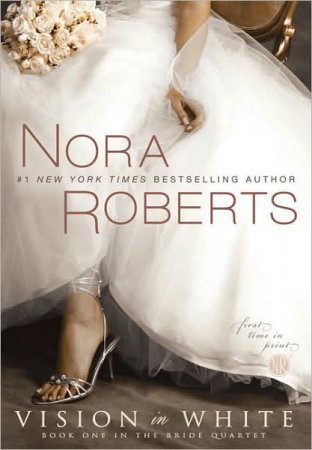 Vision in White
Vision in White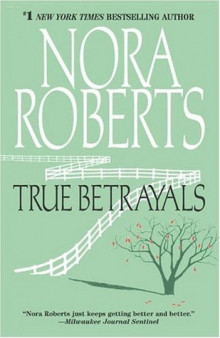 True Betrayals
True Betrayals The Next Always
The Next Always A Man for Amanda
A Man for Amanda Born in Fire
Born in Fire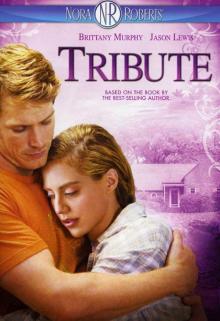 Tribute
Tribute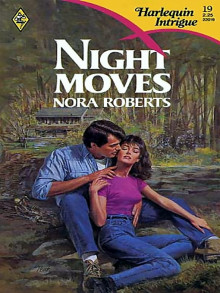 Night Moves
Night Moves Dance Upon the Air
Dance Upon the Air The Name of the Game
The Name of the Game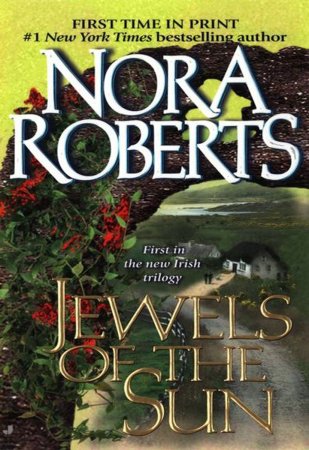 Jewels of the Sun
Jewels of the Sun River's End
River's End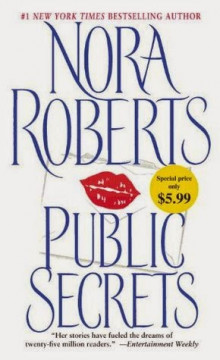 Public Secrets
Public Secrets Homeport
Homeport Private Scandals
Private Scandals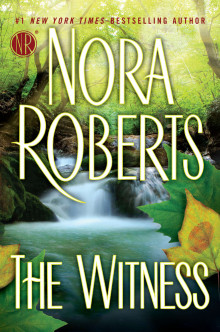 The Witness
The Witness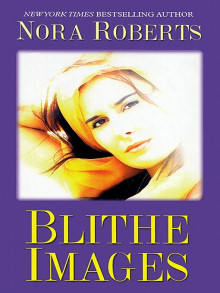 Blithe Images
Blithe Images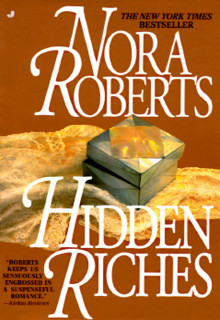 Hidden Riches
Hidden Riches Key of Light
Key of Light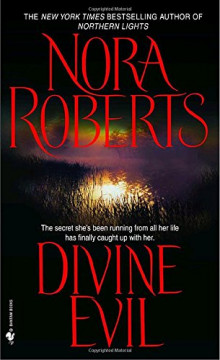 Divine Evil
Divine Evil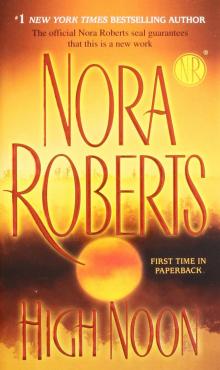 High Noon
High Noon Blue Dahlia
Blue Dahlia Sea Swept
Sea Swept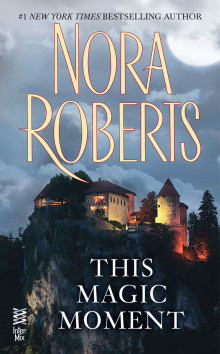 This Magic Moment
This Magic Moment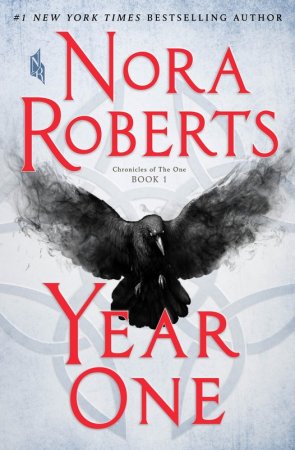 Year One
Year One A Little Fate
A Little Fate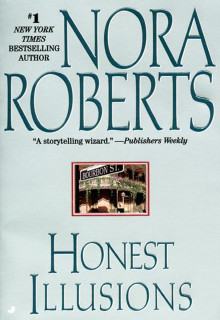 Honest Illusions
Honest Illusions The Reef
The Reef Shelter in Place
Shelter in Place The Hollow
The Hollow Holding the Dream
Holding the Dream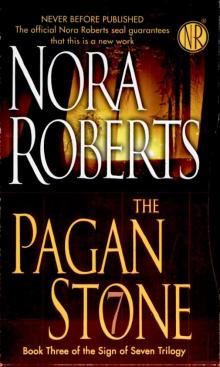 The Pagan Stone
The Pagan Stone Savour the Moment
Savour the Moment The Perfect Hope
The Perfect Hope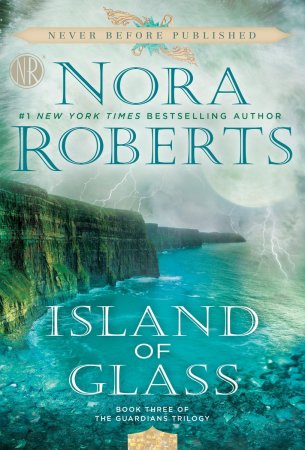 Island of Glass
Island of Glass Happy Ever After
Happy Ever After Bed of Roses
Bed of Roses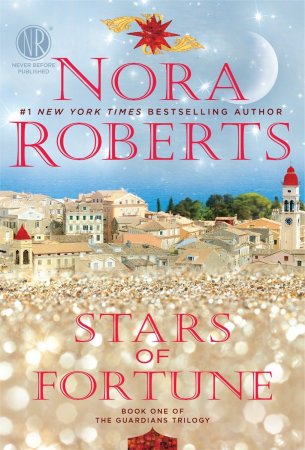 Stars of Fortune
Stars of Fortune Dark Witch
Dark Witch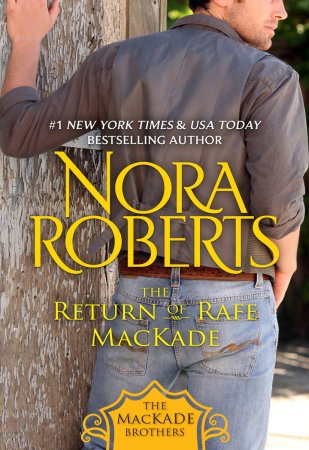 The Return of Rafe MacKade
The Return of Rafe MacKade Chesapeake Blue
Chesapeake Blue The Perfect Neighbor
The Perfect Neighbor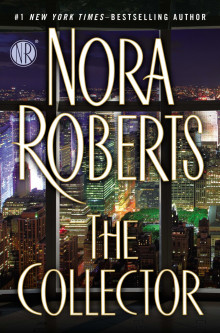 The Collector
The Collector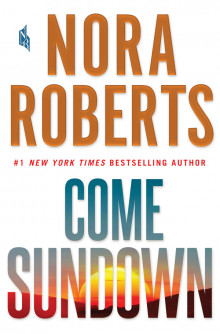 Come Sundown
Come Sundown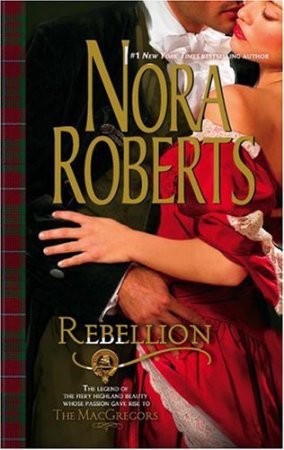 Rebellion
Rebellion Affaire Royale
Affaire Royale Daring to Dream
Daring to Dream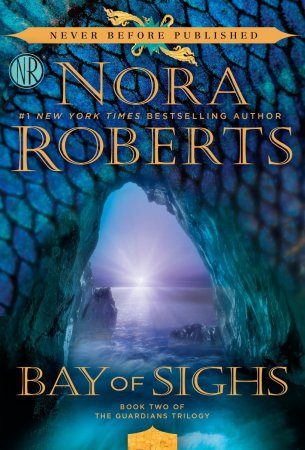 Bay of Sighs
Bay of Sighs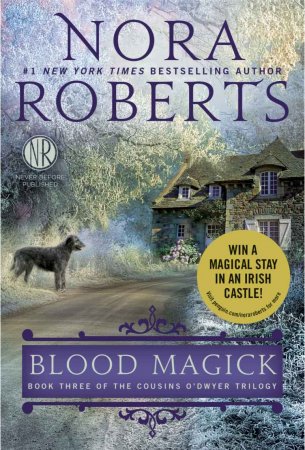 Blood Magick
Blood Magick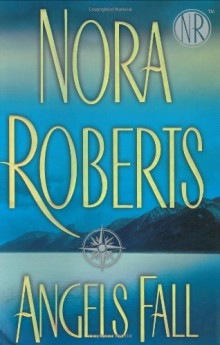 Angels Fall
Angels Fall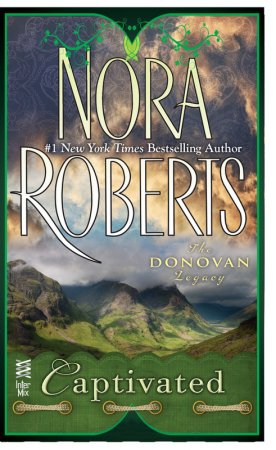 Captivated
Captivated The Last Boyfriend
The Last Boyfriend Irish Thoroughbred
Irish Thoroughbred Inner Harbor
Inner Harbor The Right Path
The Right Path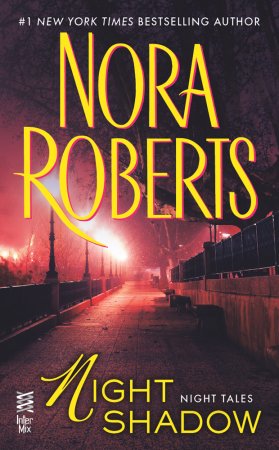 Night Shadow
Night Shadow The Heart of Devin MacKade
The Heart of Devin MacKade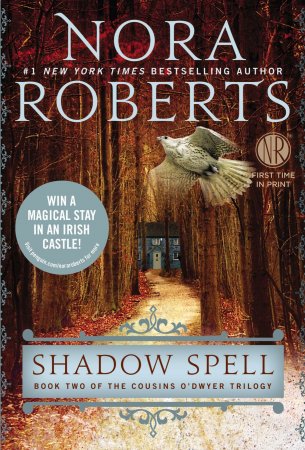 Shadow Spell
Shadow Spell The Playboy Prince
The Playboy Prince The Fall of Shane MacKade
The Fall of Shane MacKade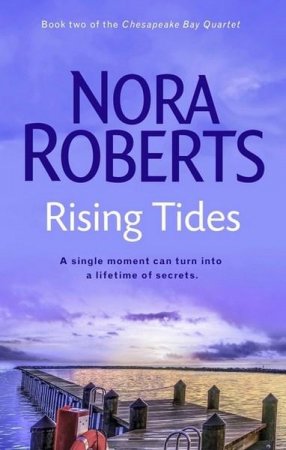 Rising Tides
Rising Tides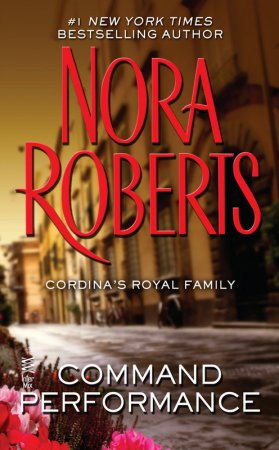 Command Performance
Command Performance Hidden Star
Hidden Star Cordina's Crown Jewel
Cordina's Crown Jewel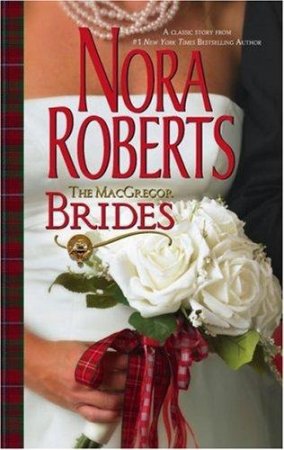 The MacGregor Brides
The MacGregor Brides The Pride of Jared MacKade
The Pride of Jared MacKade Born in Ice
Born in Ice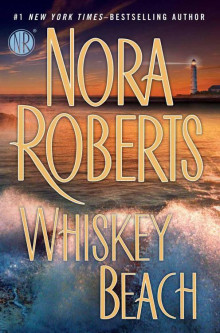 Whiskey Beach
Whiskey Beach The Last Honest Woman
The Last Honest Woman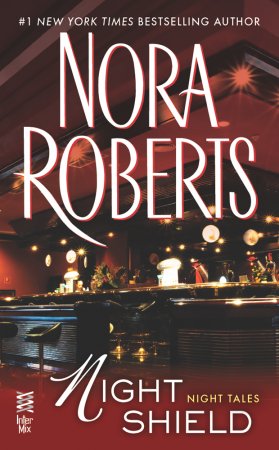 Night Shield
Night Shield Born in Shame
Born in Shame Secret Star
Secret Star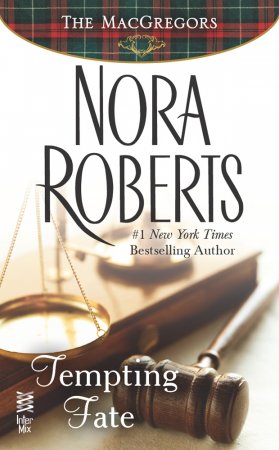 Tempting Fate
Tempting Fate Nightshade
Nightshade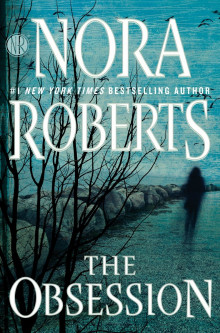 The Obsession
The Obsession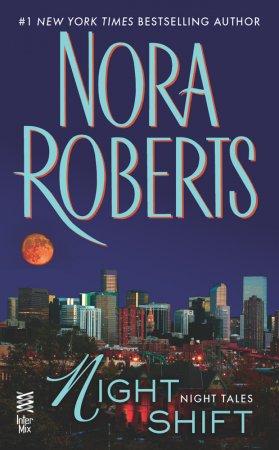 Night Shift
Night Shift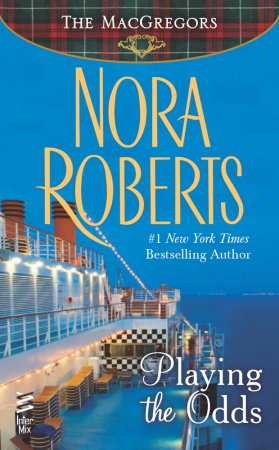 Playing The Odds
Playing The Odds Tears of the Moon
Tears of the Moon One Man's Art
One Man's Art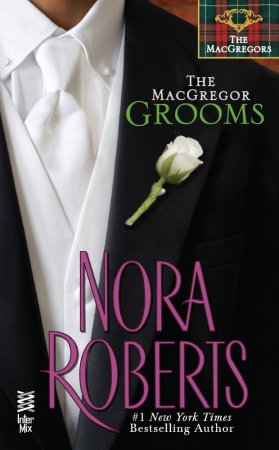 The MacGregor Groom
The MacGregor Groom Irish Rebel
Irish Rebel Morrigan's Cross
Morrigan's Cross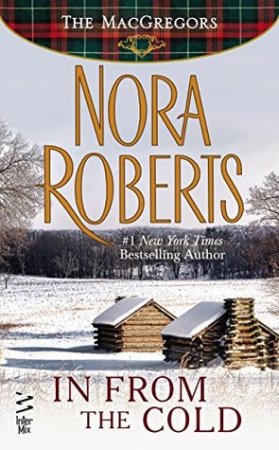 In From The Cold
In From The Cold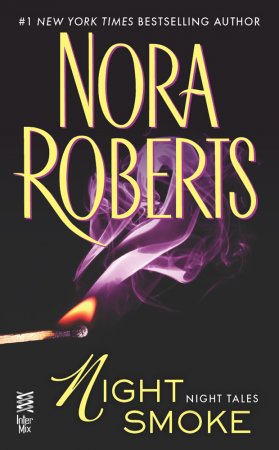 Night Smoke
Night Smoke Finding the Dream
Finding the Dream Red Lily
Red Lily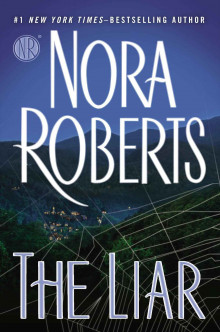 The Liar
The Liar Montana Sky
Montana Sky Heart of the Sea
Heart of the Sea All The Possibilities
All The Possibilities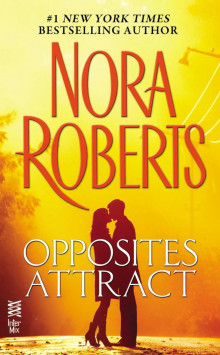 Opposites Attract
Opposites Attract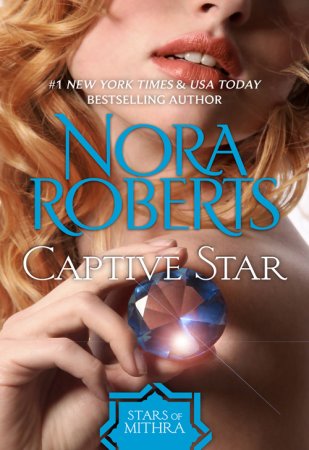 Captive Star
Captive Star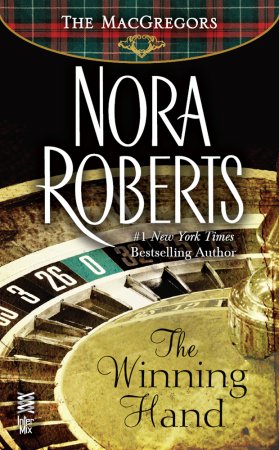 The Winning Hand
The Winning Hand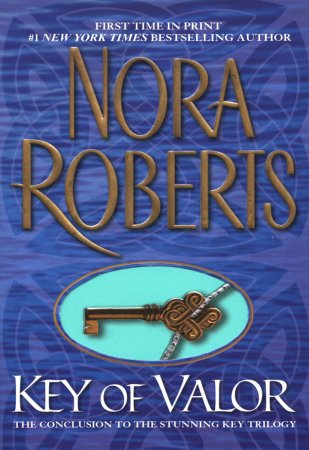 Key of Valor
Key of Valor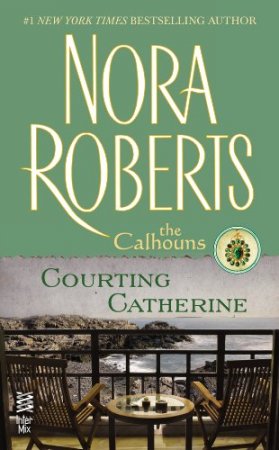 Courting Catherine
Courting Catherine Heaven and Earth
Heaven and Earth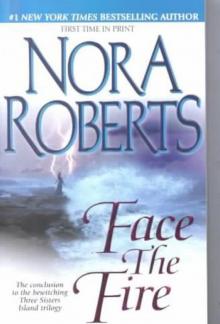 Face the Fire
Face the Fire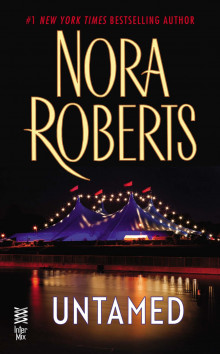 Untamed
Untamed Skin Deep
Skin Deep Enchanted
Enchanted Song of the West
Song of the West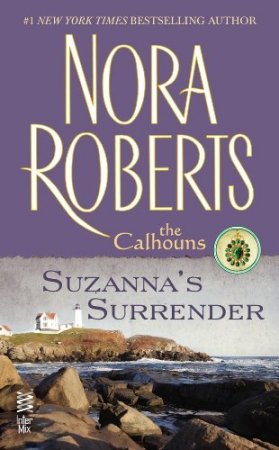 Suzanna's Surrender
Suzanna's Surrender Entranced
Entranced Dance of the Gods
Dance of the Gods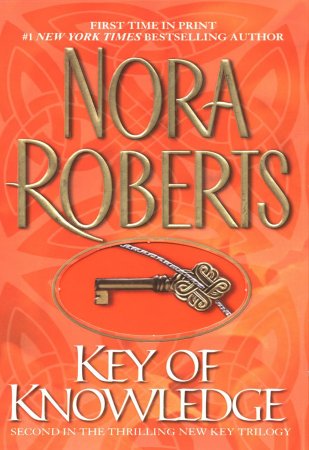 Key of Knowledge
Key of Knowledge Charmed
Charmed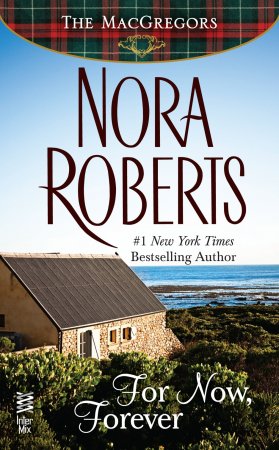 For Now, Forever
For Now, Forever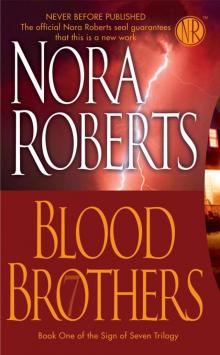 Blood Brothers
Blood Brothers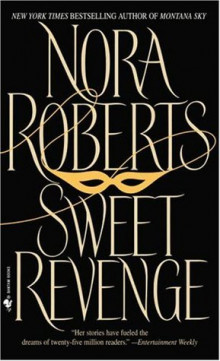 Sweet Revenge
Sweet Revenge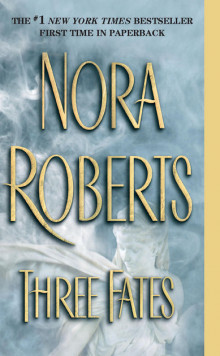 Three Fates
Three Fates Mind Over Matter
Mind Over Matter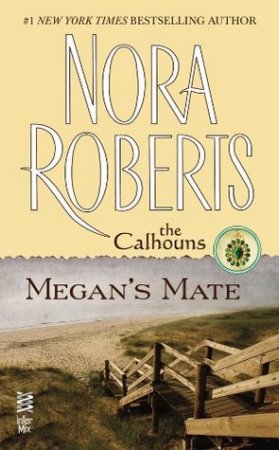 Megan's Mate
Megan's Mate Valley of Silence
Valley of Silence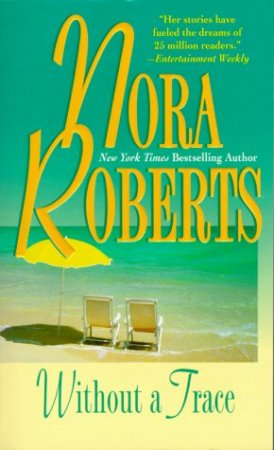 Without A Trace
Without A Trace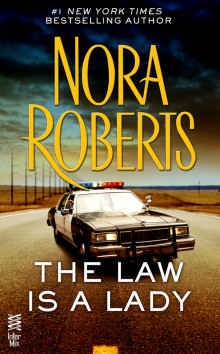 The Law is a Lady
The Law is a Lady Temptation
Temptation Dance to the Piper
Dance to the Piper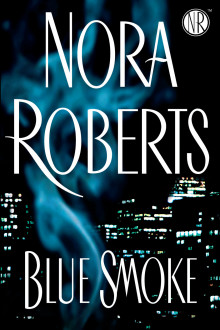 Blue Smoke
Blue Smoke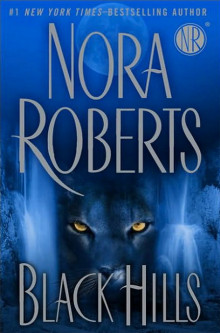 Black Hills
Black Hills The Heart's Victory
The Heart's Victory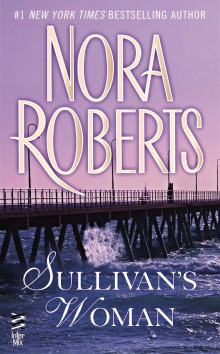 Sullivan's Woman
Sullivan's Woman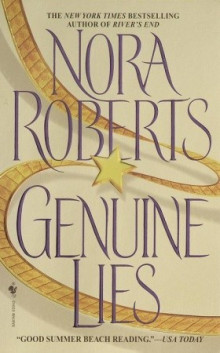 Genuine Lies
Genuine Lies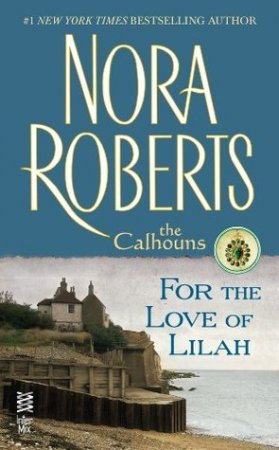 For the Love of Lilah
For the Love of Lilah Gabriel's Angel
Gabriel's Angel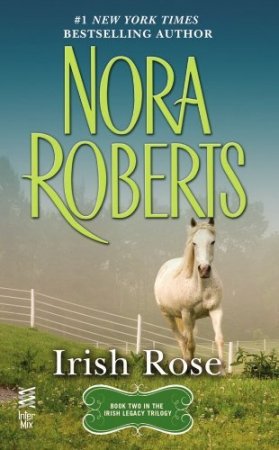 Irish Rose
Irish Rose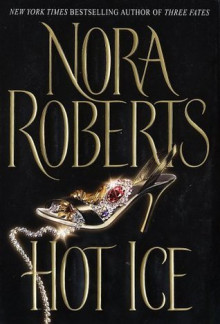 Hot Ice
Hot Ice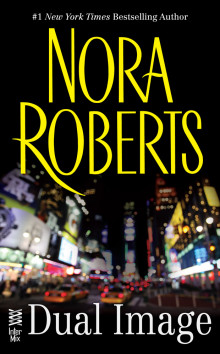 Dual Image
Dual Image Lawless
Lawless Catch My Heart
Catch My Heart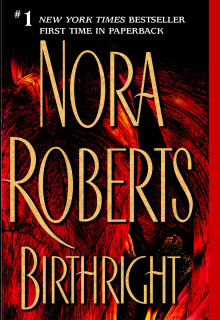 Birthright
Birthright First Impressions
First Impressions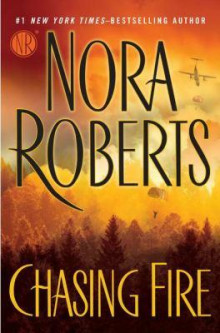 Chasing Fire
Chasing Fire Carnal Innocence
Carnal Innocence Best Laid Plans
Best Laid Plans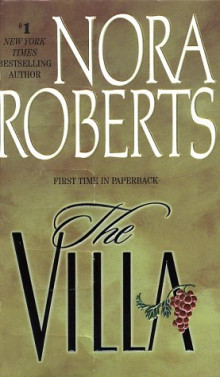 The Villa
The Villa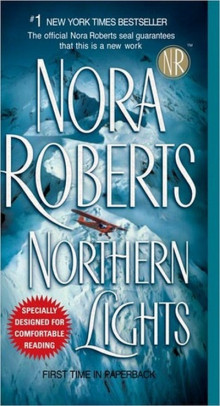 Northern Lights
Northern Lights Local Hero
Local Hero Island of Flowers
Island of Flowers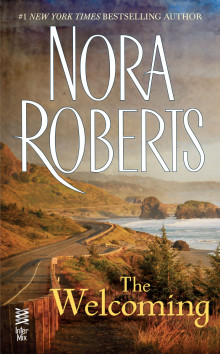 The Welcoming
The Welcoming All I Want for Christmas
All I Want for Christmas Black Rose
Black Rose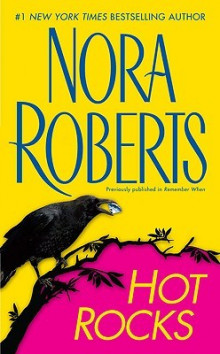 Hot Rocks
Hot Rocks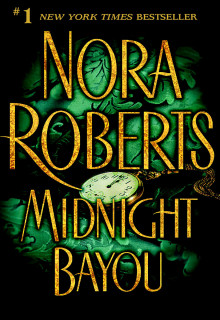 Midnight Bayou
Midnight Bayou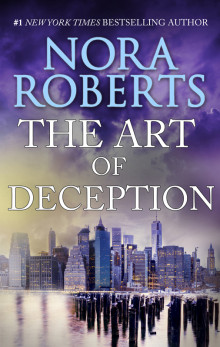 The Art of Deception
The Art of Deception From This Day
From This Day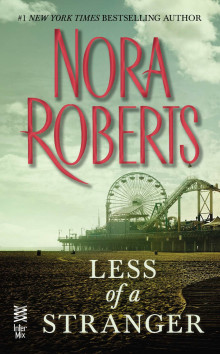 Less of a Stranger
Less of a Stranger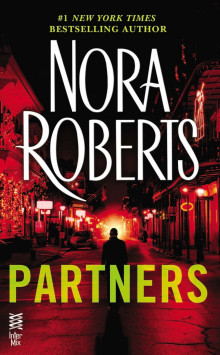 Partners
Partners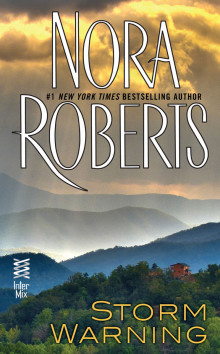 Storm Warning
Storm Warning Once More With Feeling
Once More With Feeling Her Mother's Keeper
Her Mother's Keeper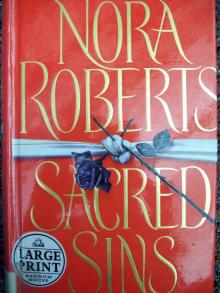 Sacred Sins
Sacred Sins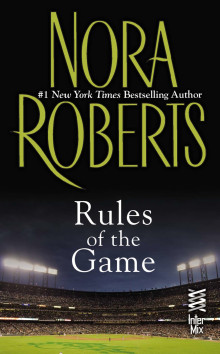 Rules of the Game
Rules of the Game Sanctuary
Sanctuary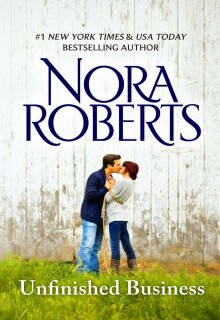 Unfinished Business
Unfinished Business Cordina's Royal Family Collection
Cordina's Royal Family Collection Dangerous Embrace
Dangerous Embrace One Summer
One Summer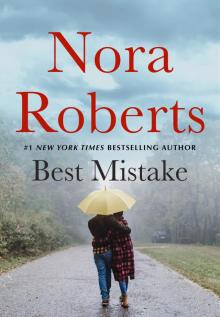 The Best Mistake
The Best Mistake Boundary Lines
Boundary Lines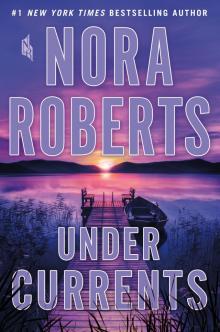 Under Currents
Under Currents The Stanislaski Series Collection, Volume 1
The Stanislaski Series Collection, Volume 1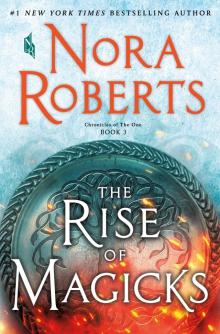 The Rise of Magicks
The Rise of Magicks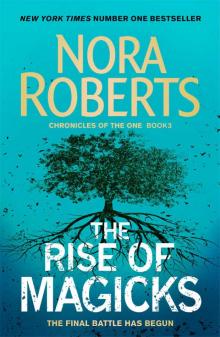 The Rise of Magicks (Chronicles of The One)
The Rise of Magicks (Chronicles of The One) The Awakening: The Dragon Heart Legacy Book 1
The Awakening: The Dragon Heart Legacy Book 1 Dance of Dreams
Dance of Dreams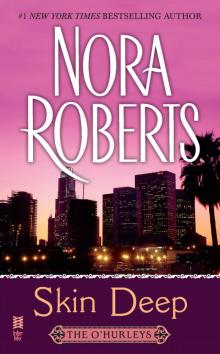 Skin Deep: The O'Hurleys
Skin Deep: The O'Hurleys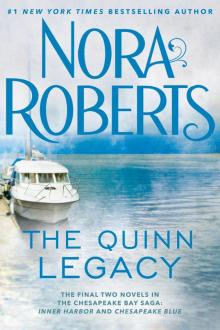 The Quinn Legacy: Inner Harbor ; Chesapeake Blue
The Quinn Legacy: Inner Harbor ; Chesapeake Blue![[Chronicles of the One 03.0] The Rise of Magicks Read online](http://i1.bookreadfree.com/11/chronicles_of_the_one_03_0_the_rise_of_magicks_preview.jpg) [Chronicles of the One 03.0] The Rise of Magicks
[Chronicles of the One 03.0] The Rise of Magicks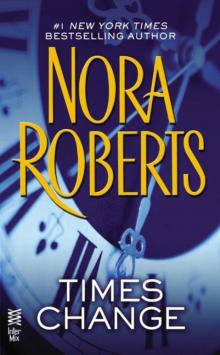 Times Change
Times Change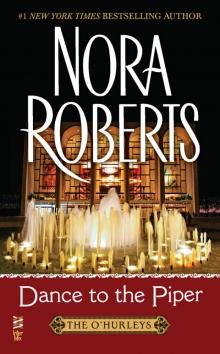 Dance to the Piper: The O'Hurleys
Dance to the Piper: The O'Hurleys Christmas In the Snow: Taming Natasha / Considering Kate
Christmas In the Snow: Taming Natasha / Considering Kate Waiting for Nick
Waiting for Nick Summer Desserts
Summer Desserts Dream 2 - Holding the Dream
Dream 2 - Holding the Dream The Novels of Nora Roberts, Volume 2
The Novels of Nora Roberts, Volume 2 In the Garden Trilogy
In the Garden Trilogy Eight Classic Nora Roberts Romantic Suspense Novels
Eight Classic Nora Roberts Romantic Suspense Novels Best Laid Plans jh-2
Best Laid Plans jh-2 From the Heart
From the Heart Holiday Wishes
Holiday Wishes Dream 1 - Daring to Dream
Dream 1 - Daring to Dream Second Nature
Second Nature Summer Pleasures
Summer Pleasures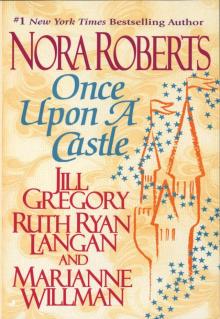 Once Upon a Castle
Once Upon a Castle Stars of Mithra Box Set: Captive StarHidden StarSecret Star
Stars of Mithra Box Set: Captive StarHidden StarSecret Star Impulse
Impulse The Irish Trilogy by Nora Roberts
The Irish Trilogy by Nora Roberts The Pride Of Jared Mackade tmb-2
The Pride Of Jared Mackade tmb-2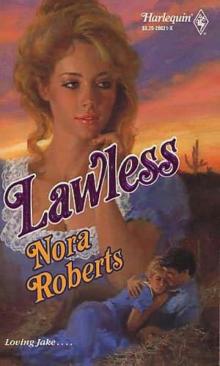 Lawless jh-3
Lawless jh-3 Taming Natasha
Taming Natasha Endless Summer
Endless Summer Bride Quartet Collection
Bride Quartet Collection Happy Ever After tbq-4
Happy Ever After tbq-4 Heart Of The Sea goa-3
Heart Of The Sea goa-3 Search for Love
Search for Love Once upon a Dream
Once upon a Dream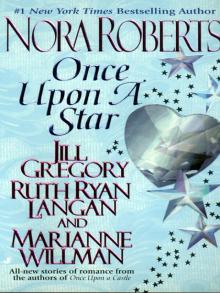 Once Upon a Star
Once Upon a Star Dream Trilogy
Dream Trilogy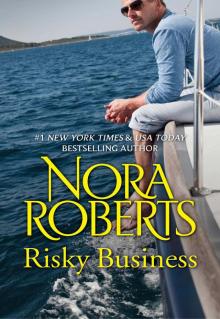 Risky Business
Risky Business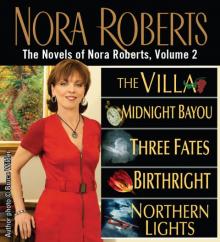 The Novels of Nora Roberts, Volume 3
The Novels of Nora Roberts, Volume 3 Dream 3 - Finding the Dream
Dream 3 - Finding the Dream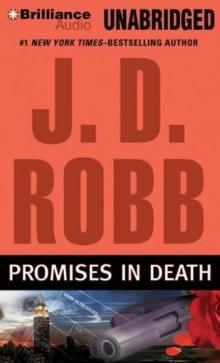 Promises in Death id-34
Promises in Death id-34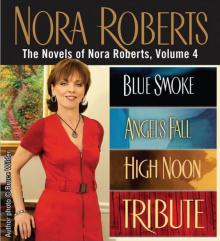 The Novels of Nora Roberts, Volume 4
The Novels of Nora Roberts, Volume 4 The Perfect Hope ib-3
The Perfect Hope ib-3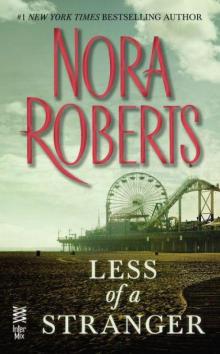 Less than a Stranger
Less than a Stranger Savour the Moment: Now the Big Day Has Finally Arrived, It's Time To...
Savour the Moment: Now the Big Day Has Finally Arrived, It's Time To... Convincing Alex
Convincing Alex Bed of Roses tbq-2
Bed of Roses tbq-2 Savour the Moment tbq-3
Savour the Moment tbq-3 Lessons Learned
Lessons Learned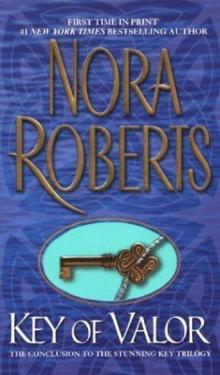 Key Of Valor k-3
Key Of Valor k-3 Red lily gt-3
Red lily gt-3 Savor the Moment
Savor the Moment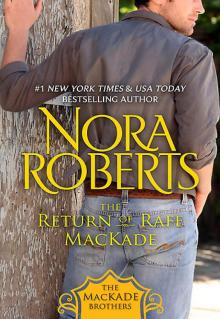 The Return Of Rafe Mackade tmb-1
The Return Of Rafe Mackade tmb-1 For The Love Of Lilah tcw-3
For The Love Of Lilah tcw-3 Black Rose gt-2
Black Rose gt-2 Novels: The Law is a Lady
Novels: The Law is a Lady Chesapeake Bay Saga 1-4
Chesapeake Bay Saga 1-4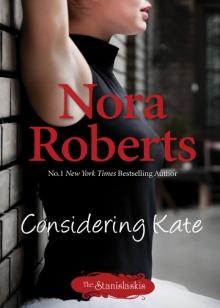 Considering Kate
Considering Kate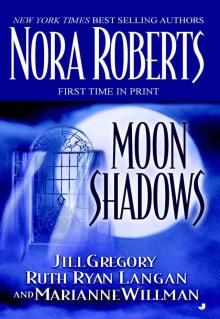 Moon Shadows
Moon Shadows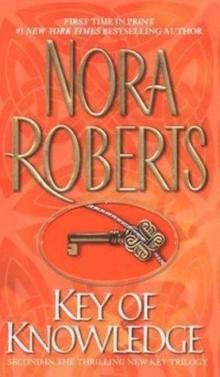 Key of Knowledge k-2
Key of Knowledge k-2 The Sign of Seven Trilogy
The Sign of Seven Trilogy Once Upon a Kiss
Once Upon a Kiss The Novels of Nora Roberts, Volume 5
The Novels of Nora Roberts, Volume 5 Suzanna's Surrender tcw-4
Suzanna's Surrender tcw-4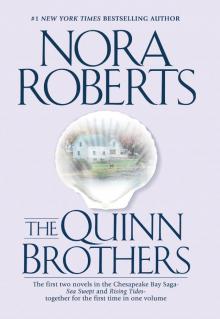 The Quinn Brothers
The Quinn Brothers Falling for Rachel
Falling for Rachel Brazen Virtue
Brazen Virtue Time Was
Time Was The Gallaghers of Ardmore Trilogy
The Gallaghers of Ardmore Trilogy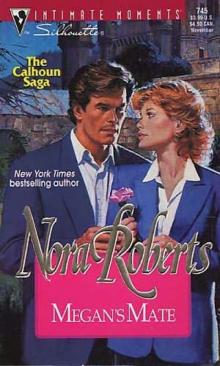 Megan's Mate tcw-5
Megan's Mate tcw-5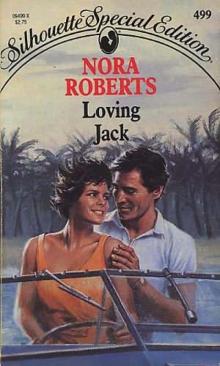 Loving Jack jh-1
Loving Jack jh-1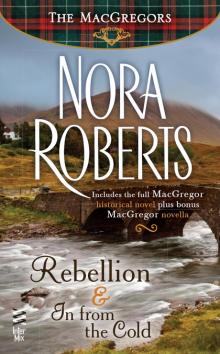 Rebellion & In From The Cold
Rebellion & In From The Cold Blue Dahlia gt-1
Blue Dahlia gt-1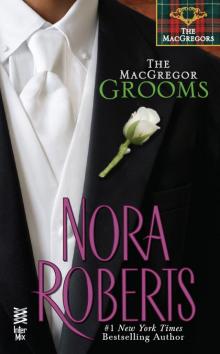 The MacGregor Grooms
The MacGregor Grooms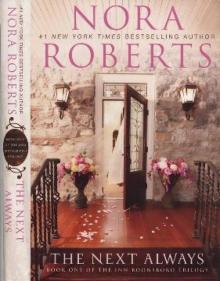 The Next Always tibt-1
The Next Always tibt-1 The Heart Of Devin Mackade tmb-3
The Heart Of Devin Mackade tmb-3 The Novels of Nora Roberts Volume 1
The Novels of Nora Roberts Volume 1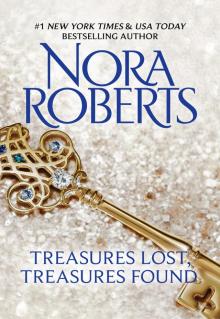 Treasures Lost, Treasures Found
Treasures Lost, Treasures Found Nora Roberts's Circle Trilogy
Nora Roberts's Circle Trilogy The Key Trilogy
The Key Trilogy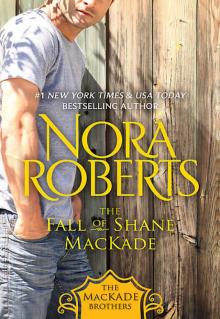 The Fall Of Shane Mackade tmb-4
The Fall Of Shane Mackade tmb-4 A Will And A Way
A Will And A Way Jewels of the Sun goa-1
Jewels of the Sun goa-1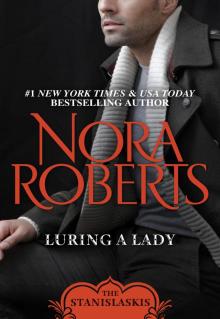 Luring a Lady
Luring a Lady